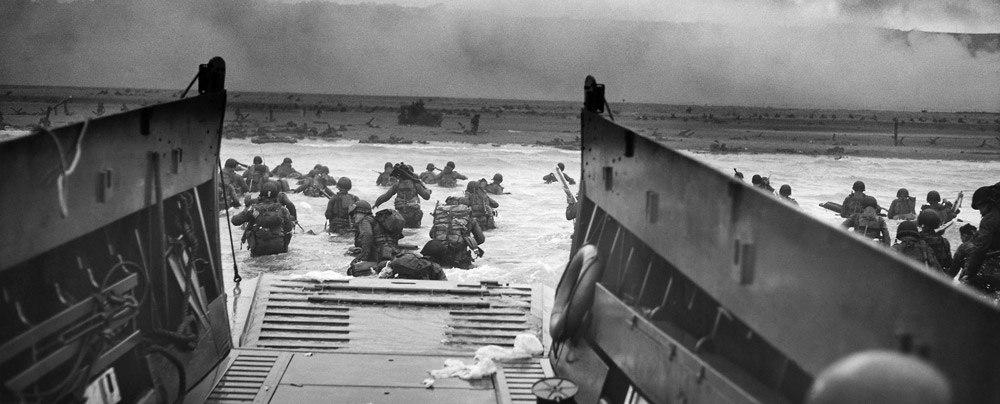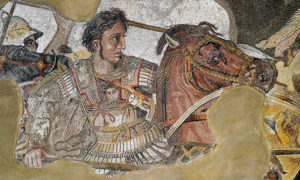HIS 155 – War and the Western World
 Understand the modern world and how it has been shaped by warfare.
Understand the modern world and how it has been shaped by warfare.
People do things and don’t know why. If asked, they might say that that is the way it has always been done or that that way has been proven to be the most intelligent way to do things. Often they don’t really know why, and they don’t know if it’s the most intelligent way or not. Wouldn’t you like to be able to understand why we do things the way we do, and whether we do them for intelligent reasons or outdated ones? Even more important, future leaders – and that could be you – need to know why things are done the way they are and what makes for smarter ways of doing things versus which past lessons have been discredited. When it comes to warfare, no matter how much technology or society changes, basic fundamentals remain the same. The more you understand those fundamentals the more you will lead discussions on the future evolution of warfare rather than follow others who may know less about how those fundamentals have been validated through the ages.
Western Civilization and warfare have had a symbiotic relationship from the very beginning, but few people realize how each has shaped the other. Both have roots that go back thousands of years, and both have evolved side-by-side over that period. More important, though, is that what we think of as modern warfare has been shaped by some of Western Civilization’s most distinct characteristics and institutions. By the same token, what Western Civilization looks like today has been greatly influenced by warfare throughout its history. In many respects, the story of one is the story of the other, and those stories are the subject of this course.
To understand modern warfare you need to understand how and why it took the distinctive shape it did, and as a military professional, the better you understand warfare, the better you will be at your chosen profession. Moreover, as a defender of our nation, our cherished institutions, and our way of life, the more you understand about our nation, its roots, and its institutions, the better you will appreciate the importance of defending them. In short, this course will help make you a better officer and military professional.
 Course Description
Course Description
The West was born of warrior cultures – Ancient Mesopotamia, Egypt, Greece, and Rome – and those cultures helped shape the foundation of Western culture. After the “Fall of Rome” Western Civilization arose from its ashes, and as that civilization evolved, its warrior tradition continued. As a result, the West’s character and some of its most important and cherished institutions were shaped by its warrior heritage and the course of warfare. In this course we will explore how warfare helped shape the distinctive features of Western civilization. We will examine, for example, how the “Gunpowder Revolution” helped bring about what we call today the ‘Nation-State.’ Moreover, as Western Civilization took on some of its most distinctive characteristics, those very characteristics helped shape a unique style of warfare that has come to represent what we think of as “Modern Warfare.”This course will also examine how those characteristics gave rise to modern warfare. To give just one example, we will see how the West’s “Industrial Revolution” led directly to a radically different, and more destructive, style of warfare that remains dominant to this day.
Why this Course is for You
- Meets the Army’s requirement for all ROTC cadets to take a true military history course as part of their academic program
- Meets the SUNY Western Civilization General Education
- This course will be a comprehensive introduction to the history of warfare, especially from the Western perspective and particularly focused on the evolution of modern warfare
- This is your chosen profession: you want – you need – to have a solid grounding in the history of your profession if you want to succeed at that profession
- This course will introduce you to the complex yet fascinating connections that have led to what we call modern warfare, and will hopefully start you on a life-long love affair of learning more about that history. I know I still love it and I hope you will too!
- While warfare is constantly evolving, many of its most basic characteristics remain timeless; many reformers you will encounter in your career will have a limited understanding of the long and convoluted “lessons of history,” yet never have those lessons been more important. YOU will want to bring that historical perspective to the discussion!
Future Benefits
“Transformation” has been the watch-word for military affairs and defense policy for over forty years, and there is no end in sight. Yet even though much of this transformation has been driven by cutting-edge science and technology, more than ever the fundamentals of warfare remain as valid as ever. There is only one way to learn those fundamentals, and that is to learn how they have been validated throughout the long course of military history or how they have been violated with disastrous results. In your lifetime – in your career – many will argue that new inventions, new technology, new ways of thinking have overturned those fundamentals; if you don’t know military history you might find yourself hamstrung trying to argue against their way of thinking – even worse, you might even get sucked into believing their arguments. Only through a solid grounding in military history will you be able to separate the wheat from the chaff of military thinking and ensure our policies, procedures, and operations remain grounded in military fundamentals. Without that grounding you may find yourself frustrated in arguing for the path of wisdom.